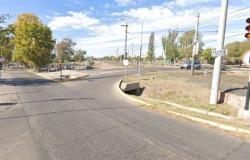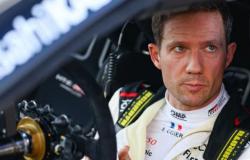The season 4 of “The Boys” takes us back to their chaotic and brutal world, where superheroes are more villains than saviors. In its first three chapters, the series delves into corruption, politics and human nature, delivering a scathing critique of power and contemporary morality. In Skip Intro of El Comercio we have already seen these episodes and here we give you the review of each one of the return of the most viewed series on Prime Video.
“The Boys” begins its fourth season with an explosion of violence and social criticism that is true to its distinctive style. The series does not mince words and from the first chapter immerses us fully in a world where morality is a distorted shadow and justice is a chimera.
LOOK: Up to 57% off. in the best of entertainment. Find out all the promotions here
The first episode reintroduces us to Homelander, played by Antony Starr, who remains one of the most terrifying forces in the series. The way Starr portrays this character is a masterpiece of contemporary television. Homelander is a superhero with the power of a god, but with the morality of a capricious child. His existential crisis manifests itself grotesquely when he becomes obsessed with a golden pubic hair, symbolizing his growing paranoia and fear of losing his supremacy. This scene, while bizarre, perfectly captures the fragility of Homelander’s psyche.
Homelander using his manipulation. (Photo: Prime Video)
Meanwhile, Vought International remains the corporate juggernaut we know. This time, we’re presented with a new PR campaign that’s so saccharine it’s nauseating. The series shows us how Vought manipulates the masses with its usual mix of lies and spectacle, creating an environment where truth is a malleable concept and justice is an empty term.
Butcher, played by Karl Urban, is dealing with a terminal diagnosis, which adds a layer of depth to his already complex character. Butcher is caught between his desire for revenge and his newfound paternal instinct. This duality adds a new dimension to his struggle, making him an even more tragic and relatable character. His mission against the supes becomes more desperate and personal, making each decision carry significant emotional weight.
The moment when they dance mocking religion in season 4 of “The Boys.” (Photo: Prime Video)
The second chapter introduces new characters to The Seven that add dynamism and tension to the narrative. Sister Sage, played by Susan Heyward, is introduced as the smartest person in the world and becomes a key player in Homelander’s power games. Her cold and calculating nature brings a new level of intrigue to the group. On the other hand, Firecracker, played by Valorie Curry, is a grotesque personification of far-right conspiracy theories. These characters not only enrich the plot, but also reflect the extremes to which political manipulation can reach in today’s society.
Meanwhile, Butcher’s team continues to face their own demons. Frenchie, played by Tomer Capone, has a more prominent subplot focusing on a complicated relationship. Although this part of the story may seem a little slow, it adds an important emotional layer to the narrative. Kimiko, played by Karen Fukuhara, decides to face her traumatic past in a literal way, choosing to destroy it. Hughie and Mother’s Milk also struggle with their own personal battles, providing the necessary emotional backdrop that balances the violence and chaos of the series.
LOOK: Concerts, plays, circuses, movies and more with up to 50% off. Discover your promos
The third chapter delves into an election year, using political satire to reflect contemporary reality in a brilliant way. Homelander, with his narcissistic rantings and orange underwear, is a clear reference to current political figures who use populism and manipulation to maintain their power. Vought’s corruption is a distorted mirror of the influence of large corporations in politics, and the series is not shy about exposing the hypocrisy and malfeasance of the powerful.

Butcher wondering if everything he does is right. (Photo: Prime Video)
“The Boys” is known for its use of graphic violence, and this episode is no exception. The scenes of Homelander using his powers to pulverize his opponents are as impactful as we expected. One of the most grotesque scenes involves an autoerotic Human Centipede, which serves as a metaphor for the characters’ depravity and decadence. This violence, while often disturbing, is an effective tool to highlight the brutality and corruption inherent in this dystopian world.
We can’t forget The Deep, who remains one of the strangest and most fascinating characters in the series. His peculiar relationship with sea creatures continues to offer moments of dark humor that balance the gravity of the main narrative. This combination of the grotesque and the absurd is one of the characteristics that make “The Boys” such a unique and captivating series.
“The Boys” is not just a series about superheroes; is a scathing commentary on modern society. Through its narrative, the series explores themes such as corruption, manipulation of the truth and unbridled power. The depiction of Vought as an unscrupulous corporation is a direct criticism of how big business can influence and manipulate politics and public opinion. The series not only shows the supes as villains, but also reflects how the institutions that should protect us are often corrupted and fail in their duty.
One of the highlights of “The Boys” is the complexity of its characters. Homelander, while a clear villain, is also a deeply human character in the fragility and paranoia of him. Butcher, although the hero of the series, is not without flaws and struggles with his own inner demons. This duality in the characters adds depth to the narrative and makes the audience question the nature of good and evil. In a world where heroes are villains and villains are heroes, the series invites us to reflect on our own perceptions of morality and justice.

“The Boys” has become an essential series not only for its entertainment, but for its ability to reflect and criticize contemporary problems in an incisive way. In its first three episodes, season 4 continues this tradition, offering a brutal and honest vision of a world where power and corruption go hand in hand. For the most part I would say yes.
The violence in “The Boys” is not gratuitous; serves as a reflection of the brutality and indifference of today’s society. The political and social satire of the series is a powerful tool that makes us question the power structures and motivations behind the actions of those in power. In a world where truth is distorted and justice is sacrificed on the altar of power and profit, “The Boys” offers us a critical and necessary look at the darkness that can lurk at the heart of humanity.

With only three episodes aired, season 4 of “The Boys” has already established a dark and reflective tone that promises to continue challenging our perceptions and expectations. The series not only entertains us, but also forces us to face the reality of our own society and question the power structures that govern it.
In conclusion, the first three episodes of season 4 of “The Boys” not only meet expectations, but exceed them, offering a perfect mix of action, drama and political satire that leaves us eager to see what else he has in store for us. this amazing series.
A new episode of “The Boys” will be released every Thursday and you can follow season 4 exclusively on Amazon Prime Video.
RECOMMENDED VIDEO












